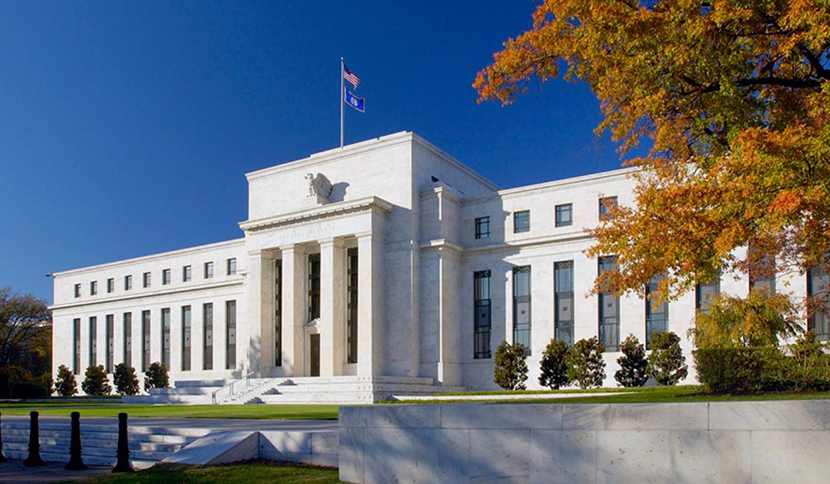
Fed: No Change in Policy Anytime Soon

The Federal Open Market Committee yesterday said ongoing concerns about the coronavirus and the resulting economic stall means it will hold fast on its current policies.
“The coronavirus outbreak is causing tremendous human and economic hardship across the United States and around the world, the FOMC said in its statement following its two-day policy meeting (https://www.federalreserve.gov/newsevents/pressreleases/monetary20200729a.htm). “Following sharp declines, economic activity and employment have picked up somewhat in recent months but remain well below their levels at the beginning of the year. Weaker demand and significantly lower oil prices are holding down consumer price inflation. Overall financial conditions have improved in recent months, in part reflecting policy measures to support the economy and the flow of credit to U.S. households and businesses.”
The FOMC kept the federal funds rate at zero and said it would continue its purchases of Treasury securities and agency residential and commercial mortgage-backed securities at least at the current pace. “The Committee expects to maintain this target range until it is confident that the economy has weathered recent events and is on track to achieve its maximum employment and price stability goals,” it said.”
Mike Fratantoni, Chief Economist with the Mortgage Bankers Association, said the FOMC action was widely expected. “The Federal Reserve did not break new ground at their July meeting,” he said. “From a mortgage market perspective, the key comment in the FOMC’s statement today was that they will keep rates at zero until the economy is back on track, echoing the commitment from their June meeting.”
Fratantoni noted the Fed’s commitment to continuing to purchase mortgage-backed securities “will keep the mortgage market functioning smoothly, even with the profound uncertainties regarding the future path of the pandemic and the economy.”
Fratantoni also said he expects the Fed could strengthen its forward guidance on the future path of interest rates at its September meeting (Sept. 15-16), providing more explicit signals as to which factors could lead them to eventually raise short-term rates.
“In the meantime, we expect mortgage rates will stay near all-time lows,” Fratantoni said. “These record-low mortgage rates will continue to provide stimulus to homeowners who refinance and lower their monthly payments, while also boosting homebuyer demand and their purchasing power.”
The FOMC statement appears below:
“The Federal Reserve is committed to using its full range of tools to support the U.S. economy in this challenging time, thereby promoting its maximum employment and price stability goals.
“The coronavirus outbreak is causing tremendous human and economic hardship across the United States and around the world. Following sharp declines, economic activity and employment have picked up somewhat in recent months but remain well below their levels at the beginning of the year. Weaker demand and significantly lower oil prices are holding down consumer price inflation. Overall financial conditions have improved in recent months, in part reflecting policy measures to support the economy and the flow of credit to U.S. households and businesses.
“The path of the economy will depend significantly on the course of the virus. The ongoing public health crisis will weigh heavily on economic activity, employment, and inflation in the near term, and poses considerable risks to the economic outlook over the medium term. In light of these developments, the Committee decided to maintain the target range for the federal funds rate at 0 to 1/4 percent. The Committee expects to maintain this target range until it is confident that the economy has weathered recent events and is on track to achieve its maximum employment and price stability goals.
“The Committee will continue to monitor the implications of incoming information for the economic outlook, including information related to public health, as well as global developments and muted inflation pressures, and will use its tools and act as appropriate to support the economy. In determining the timing and size of future adjustments to the stance of monetary policy, the Committee will assess realized and expected economic conditions relative to its maximum employment objective and its symmetric 2 percent inflation objective. This assessment will take into account a wide range of information, including measures of labor market conditions, indicators of inflation pressures and inflation expectations, and readings on financial and international developments.
“To support the flow of credit to households and businesses, over coming months the Federal Reserve will increase its holdings of Treasury securities and agency residential and commercial mortgage-backed securities at least at the current pace to sustain smooth market functioning, thereby fostering effective transmission of monetary policy to broader financial conditions. In addition, the Open Market Desk will continue to offer large-scale overnight and term repurchase agreement operations. The Committee will closely monitor developments and is prepared to adjust its plans as appropriate.
“Voting for the monetary policy action were Jerome H. Powell, Chair; John C. Williams, Vice Chair; Michelle W. Bowman; Lael Brainard; Richard H. Clarida; Patrick Harker; Robert S. Kaplan; Neel Kashkari; Loretta J. Mester; and Randal K. Quarles.”
